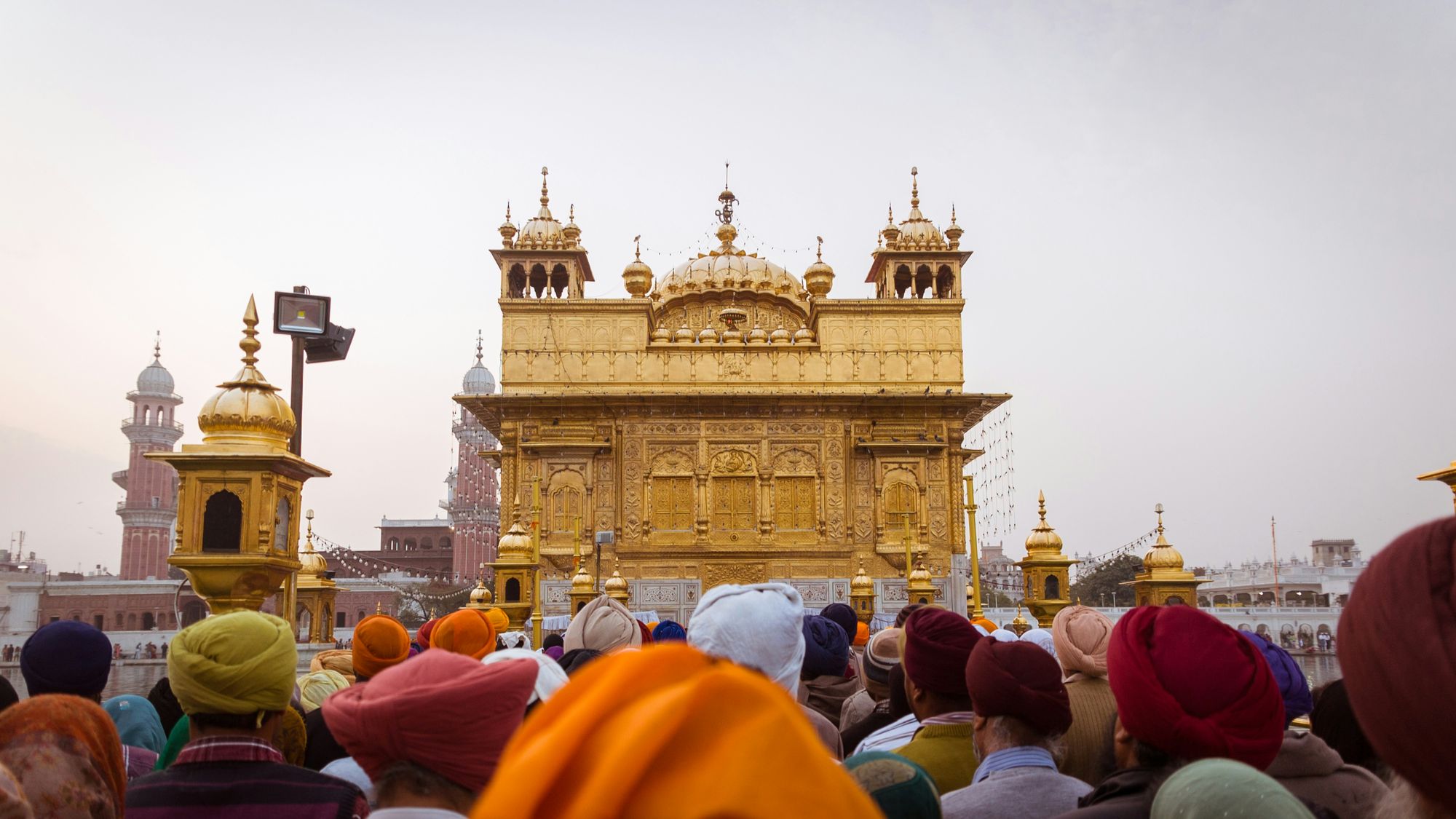Following the Guru's Path: Exploring Direct Cremation in Sikhism

The loss of a loved one in the Sikh community is a time for reflection and remembrance. Sikhism, emphasizing the impermanence of the physical body and the eternity of the soul (atma), traditionally focuses on respectful cremation rituals. However, the modern world presents new considerations, and direct cremation, a simpler and faster approach, is gaining some traction within Sikh families.
This blog post explores direct cremation in the context of Sikh beliefs and practices, examining its compatibility with core tenets and how companies like Eirene can help facilitate a respectful farewell aligned with Sikh principles.
The Cycle of Rebirth: Traditional Sikh Cremation Rites
Sikh cremation rituals, known as Antya Sanskaar, emphasize the impermanence of the physical form and the continuation of the atma. Here's a simplified breakdown of the traditional process:
- Preparation: The body is bathed with reverence and dressed in clean clothes. Ardaas (prayers) are offered for the atma's peace.
- The Antim Sanskaar: The body is carried on a bier to the cremation ground, accompanied by the chanting of hymns from the Guru Granth Sahib, the holy scripture.
- The Cremation: The body is cremated on a pyre built with sandalwood or other sacred wood. Offerings like ghee (clarified butter) and langar (community kitchen food) may be made.
- Kirtan Sohila: After the cremation, the Kirtan Sohila, evening prayers, are recited for the atma's peace.
- Bhog: An Akhand Path, a continuous recitation of the Guru Granth Sahib, is held for three or seven days, culminating in a langar (community meal) in memory of the deceased.
Shifting Sands: Examining Reasons for Direct Cremation
Despite the significance of traditional cremation rituals, some Sikh families are considering direct cremation for various reasons:
- Urbanization and Busy Lifestyles: Modern life in urban centers can make it challenging to fulfill elaborate rituals, especially for geographically dispersed families.
- Financial Considerations: Traditional ceremonies and funeral homes can be expensive, and direct cremation offers a more affordable alternative.
- Environmental Concerns: Large pyres using significant amounts of wood can have environmental consequences. Direct cremation offers a potentially more environmentally conscious option.
Theological Considerations: Balancing Tradition and Modernity
Sikhism emphasizes the impermanence of the physical form and the eternal nature of the atma. Here's how direct cremation can be incorporated respectfully:
- Focus on the Atma: The primary focus remains on the atma's journey. Prayers and recitations from the Guru Granth Sahib can still be performed before or after cremation, emphasizing the spiritual significance of the event.
- Respect for the Body: Even with direct cremation, the body deserves respectful handling. Eirene prioritizes ethical and legal cremation procedures, ensuring the process adheres to all guidelines.
- Seeking Guidance from a Gurdwara: Consulting with a Gurdwara (Sikh place of worship) is crucial. Discuss your wishes and concerns to find a path that balances tradition with modern considerations. They can guide you on incorporating prayers and readings from the Guru Granth Sahib even within a direct cremation framework.
Eirene: A Partner in Respectful Direct Cremation
Cremation service providers like Eirene can be valuable allies in honoring your wishes while respecting Sikh traditions.
We offer:
- Ethical Cremation Processes: Eirene prioritizes respectful and ethical cremation procedures, ensuring the process adheres to legal and regulatory guidelines.
- Transparent Communication: Open communication allows you to discuss your specific needs and preferences with Eirene, ensuring all your requests are meticulously followed.
- Flexibility for Post-Cremation Ceremonies: Eirene understands the importance of post-cremation rituals like Akhand Path and langar. We can work with you to ensure the cremated remains are available for these observances at the Gurdwara.
Planning a Respectful Farewell with Direct Cremation
Even with direct cremation, creating a meaningful experience that honors your loved one is possible:
- Prayers and Kirtan: Organize a gathering of family and friends at the Gurdwara for prayers, Kirtan Sohila (evening prayers), and recitation from the Guru Granth Sahib.
- Langar Seva: Consider organizing a langar (community meal) in memory of the deceased, fostering a sense of community and sharing.
- Disposition of Ashes: Following the cremation, discuss respectful options for the ashes with your family and the Gurdwara. These could include scattering them in a designated body of water or keeping them at the Gurdwara for further prayers.
Finding Solace in Seva and Sangat
Sikhism emphasizes selfless service (seva) and the importance of community (sangat). During this difficult time, focus on acts of seva, such as volunteering at a local homeless shelter or donating to a charity in your loved one's name. Seek comfort and support from the Sikh community through gatherings (sangat) at the Gurdwara.
Additional Considerations
- Denominational Variations: There may be slight variations in practices between different Sikh denominations, like Namdhari Sikhs or Sikhs outside of India. Consulting with a Gurdwara that aligns with your specific tradition ensures you adhere to the practices observed in your community.
- Open Communication is Key: Open communication with your family, Gurdwara officials, and the Sikh community is crucial throughout the process. Discuss your preferences, concerns, and how direct cremation can be incorporated respectfully within the framework of your faith.
Resources
- Sikhs.org: https://www.sikhs.org/
- The Sikh Coalition: https://www.sikhcoalition.org/
- Understanding Sikhism: https://www.bbc.co.uk/religion/religions/sikhism/
Remember, Eirene is Here to Help. The loss of a loved one is a deeply personal experience. Eirene understands the importance of navigating this difficult time with sensitivity and respect. We are committed to providing support and guidance throughout the direct cremation process, ensuring it aligns with your wishes and the core tenets of your Sikh faith.
May you find peace and comfort during this difficult time.
At Eirene, we believe that end-of-life planning should be comforting, transparent, and dignified. Too often, families struggle with the chaos, opacity, and expense of conventional funeral arrangements. We envision a better way - one centered on the belief that the end of life deserves as much beauty, grace, and meaning as the moments that came before.




